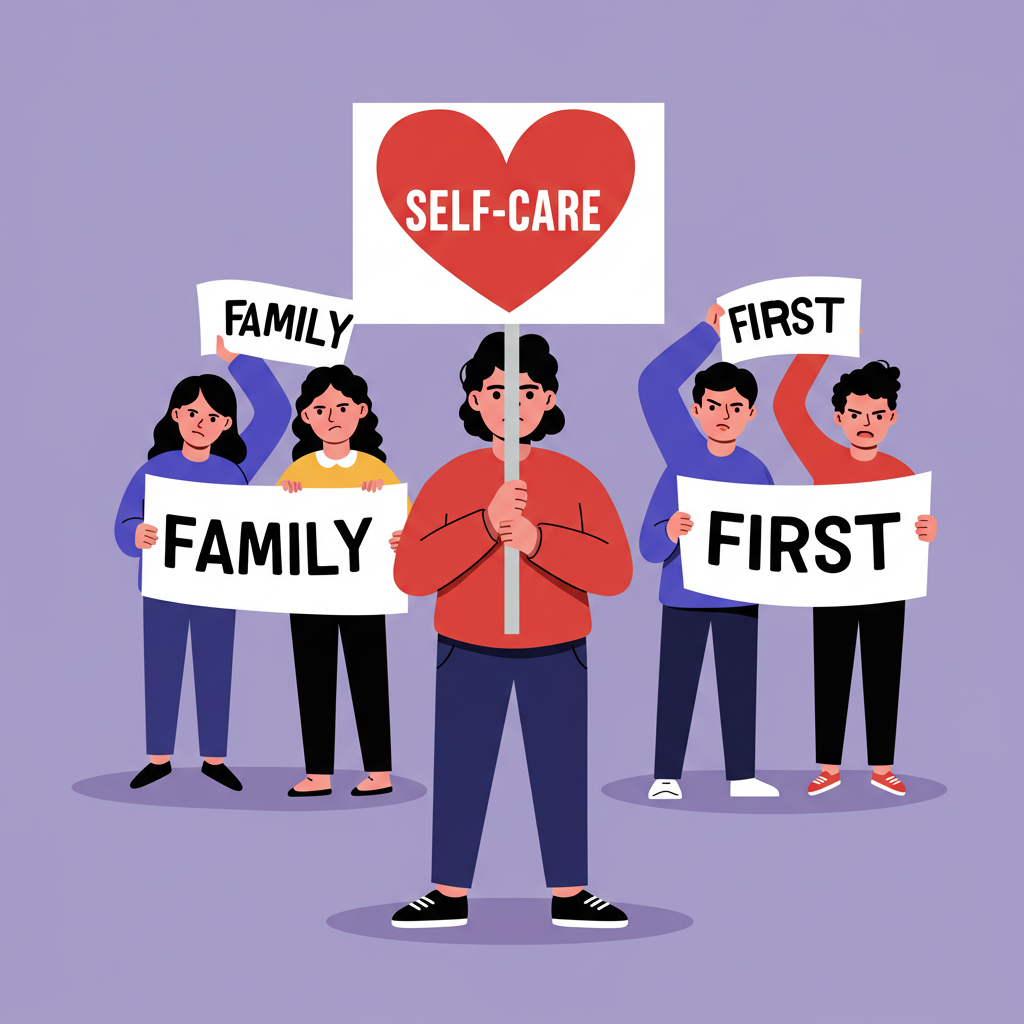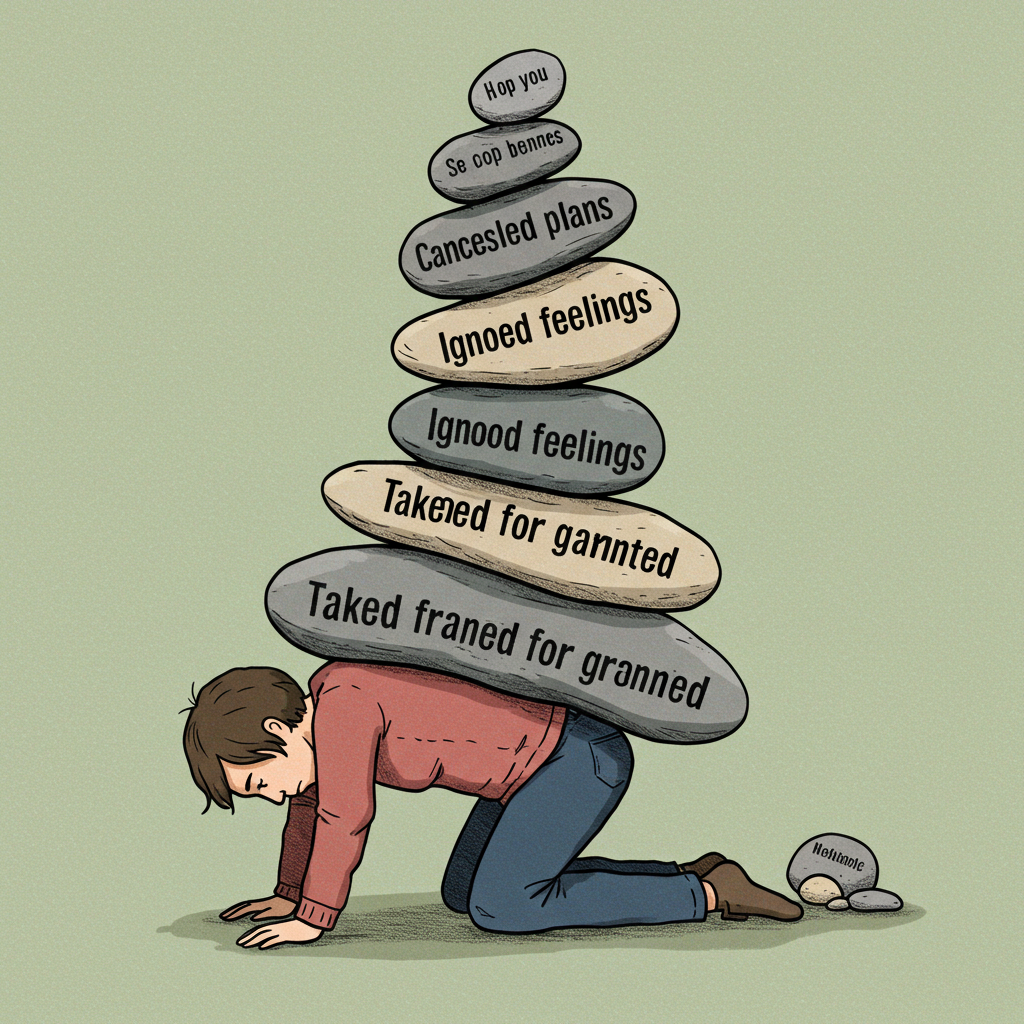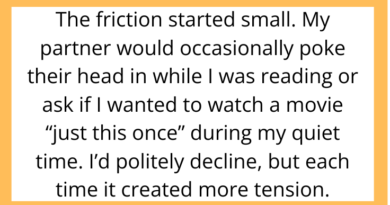AITAH for Refusing to Babysit My Sister’s Kids After She Cancelled My Birthday Plans?
I came across a viral discussion on r/AITAH that perfectly captures the tension between family obligations and personal boundaries. The situation? A Reddit user asked if they were in the wrong for refusing to babysit their sister’s children after she bailed on celebrating their birthday. Let’s dive into this scenario, unpack the emotions, and explore what happens when expectations clash with self-respect.
The Story: When Your Birthday Takes a Backseat

The original poster (OP) explained that they had been looking forward to a simple birthday dinner with their sister and her husband. The plan was to go out to a local restaurant they’d all enjoyed since childhood.
A day before the celebration, OP’s sister called to cancel, explaining that she was exhausted and needed a night in. OP felt disappointed but understood—until the next morning, when the sister texted asking if OP could babysit their three children so she could “run errands.”
When OP declined, explaining they had other plans and were still hurt about their birthday, the sister accused them of being selfish and punishing her kids for something they didn’t do.
Why This Scenario Feels So Relatable
Many readers resonated with OP’s story because it highlights a common experience: family members expecting unconditional help, no matter how they treat you in return.
Some of the reasons this post struck a chord included:
-
The casual dismissal of OP’s birthday, despite it being important to them
-
The immediate shift to asking for a favor
-
The guilt-tripping language used when OP set a boundary
This is the kind of situation that leaves you questioning your own worth and whether you’re overreacting.
The Double Standard of Family Obligations

When Reciprocity Disappears
One of the major themes in the AITAH thread was the double standard. OP’s sister felt entitled to OP’s time but didn’t feel obligated to show up for OP’s milestone.
This dynamic often shows up in families where:
-
One sibling is seen as the “reliable helper”
-
Emotional labor is unevenly distributed
-
Acts of service are expected but rarely reciprocated
As many commenters pointed out, relationships that function this way are transactional—but only in one direction.
Emotional Manipulation Disguised as Disappointment

Guilt as a Tool
Another reason this story resonated with so many people was the guilt-tripping. Instead of acknowledging OP’s hurt feelings or offering an apology for cancelling, the sister framed OP’s “no” as cruelty toward the children.
This tactic is subtle but powerful. It shifts the focus away from the sister’s actions and onto OP’s supposed lack of compassion. Over time, this can erode your self-esteem and make you question your own reality.
Example:
One commenter shared that their older brother used to do the same—minimize their feelings and then accuse them of being selfish if they didn’t step up immediately.
The Myth That Family Always Comes First

When Self-Care Becomes a Radical Act
Many cultures reinforce the idea that family should always be your top priority. But what happens when those expectations are used to justify disrespect or entitlement?
In OP’s case, declining to babysit wasn’t about punishing anyone. It was a boundary: “You don’t get to ask for my help while ignoring my needs.”
While it’s easy to label this as selfish, healthy relationships depend on reciprocity, respect, and care in both directions. Saying no sometimes is not a betrayal—it’s necessary.
The Impact of Repeated Disappointments

Why Small Letdowns Add Up
One detail that stood out in OP’s story was how much they had been looking forward to their birthday. It wasn’t about an expensive dinner or grand gestures. It was about feeling valued.
When small disappointments stack up—like last-minute cancellations or being taken for granted—they create resentment. Over time, these unresolved feelings can lead to:
-
Withdrawing emotionally
-
Avoiding family gatherings
-
Guilt that prevents honest communication
What the AITAH Community Decided
Thousands of Redditors weighed in, and the overwhelming verdict was that OP is not the problem here.
Declining to babysit after being let down wasn’t petty or vindictive. It was an honest response to feeling unappreciated. Most agreed that OP’s sister needed to reflect on how her choices impacted those around her before expecting favors.
Lessons We Can All Learn from This

This AITAH scenario offers some important takeaways:
-
Boundaries are healthy. You can love your family and still say no.
-
Reciprocity matters. Support should be mutual, not one-sided.
-
Guilt is not accountability. Just because someone feels disappointed doesn’t mean you did something wrong.
-
Communicate clearly. Explain how actions affect you rather than letting resentment build.
Tips for Setting Boundaries Without Guilt

If you find yourself in a similar situation, here are a few strategies:
-
Be direct and compassionate. “I understand you’re tired, but I’m hurt that my birthday wasn’t a priority.”
-
Stay consistent. If you set a boundary, follow through calmly.
-
Don’t over-explain. A simple “I’m not available” is enough.
-
Practice self-care. Make time for activities that restore you emotionally.



